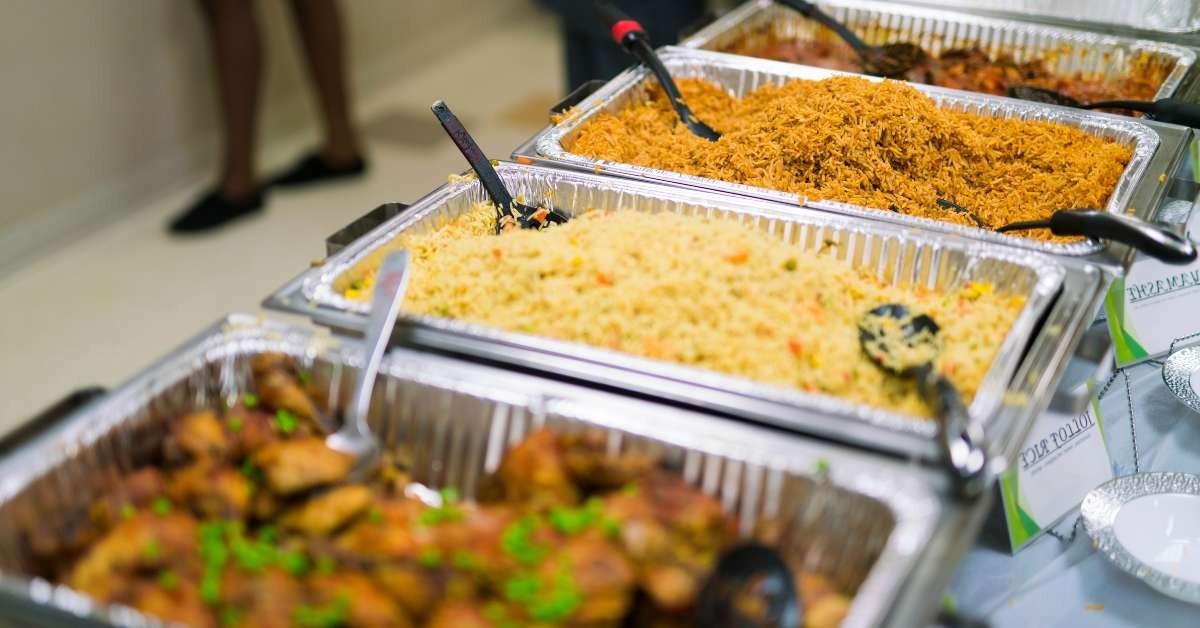For many Africans, especially Nigerians, moving to the USA can be both exciting and challenging. While the opportunities are abundant, leaving behind the rich cultural experiences of home is often a struggle. One of the most important elements of this cultural connection is food. Nigerian cuisine is not just about satisfying hunger; it is deeply tied to cultural heritage, memories, and traditions. For Nigerians living in the USA, their food serves as a powerful reminder of where they come from and helps them maintain a strong connection to their roots.
In this post, we will explore how Nigerian cuisine helps Africans in the USA stay connected to their culture and why food plays such a crucial role in preserving this connection.
A Taste of Home: The Importance of Nigerian Cuisine
For Africans living in the USA, the craving for familiar tastes and aromas can be overwhelming. Nigerian cuisine offers a taste of home, bringing back memories of family gatherings, celebrations, and everyday meals shared with loved ones. Whether it’s the spicy kick of jollof rice, the rich flavor of egusi soup, or the comforting texture of fufu, Nigerian food provides a sense of comfort and nostalgia for those who are far from home.
Food, after all, is one of the most important markers of identity. As a cultural expression, Nigerian cuisine plays a central role in how individuals relate to their heritage. It is more than just sustenance; it is an emotional connection to the land, the people, and the memories of one’s upbringing. For many Nigerians in the USA, the act of cooking traditional meals or dining at Nigerian restaurants is a way to maintain that deep-rooted connection to their culture.
Preserving Tradition Through Nigerian Cuisine
When it comes to cultural preservation, Nigerian food plays a vital role in passing traditions from one generation to the next. For families in the USA, preparing and sharing Nigerian meals is a way of teaching younger generations about their heritage. Children born in the USA, who may not have had the chance to experience life in Nigeria, are often introduced to their cultural roots through the food they eat at home.
Dishes like pounded yam, bitterleaf soup, and suya are passed down from mothers and grandmothers to the younger generation, ensuring that the rich culinary traditions of Nigeria are never lost, even in a foreign land. This shared experience of cooking and eating together strengthens familial bonds and instills a sense of pride in one’s Nigerian identity.
Nigerian Cuisine and Social Gatherings
Food has always been at the heart of social gatherings in Nigeria, and this tradition continues for Nigerians living in the USA. Whether it’s a birthday party, wedding, or church event, Nigerian cuisine is an essential part of bringing people together. Even miles away from home, Nigerians living abroad find comfort in the familiar dishes served at these gatherings.
For many, Nigerian cuisine becomes a way of celebrating and expressing their culture in a social context. A dish like jollof rice, for example, is more than just food – it’s a symbol of unity and celebration. Nigerians in the USA often take great pride in cooking and sharing traditional meals with their friends and neighbors, giving them a chance to showcase their cultural heritage.
Nigerian Restaurants in the USA: A Hub of Culture
While some Nigerians prefer to cook traditional meals at home, many find comfort in visiting Nigerian restaurants in the USA. These restaurants are more than just places to eat – they become hubs of culture and community for Nigerians living abroad. They serve as meeting points where Nigerians can gather, share stories, and enjoy the food that reminds them of home.
Restaurants like Oyedu Naija Kitchen provide authentic Nigerian cuisine to Africans living in the USA, offering dishes that transport diners back to the streets of Lagos or the bustling markets of Abuja. From classic favorites like pepper soup to beloved staples like fried plantains, these restaurants allow Nigerians in the USA to reconnect with their cultural heritage through food.
Conclusion: Keeping Culture Alive Through Nigerian Cuisine
In a foreign land, food becomes one of the most tangible links to home. For Nigerians living in the USA, Nigerian cuisine is more than just nourishment; it’s a bridge to their heritage, a way to keep their culture alive, and a means of maintaining their identity. Whether through home-cooked meals, social gatherings, or dining at authentic Nigerian restaurants, food plays a central role in preserving the cultural bonds that tie Africans to their roots.
If you’re craving a taste of home or looking to share the richness of Nigerian cuisine with your friends and family, Oyedu Naija Kitchen is here to bring the flavors of Nigeria to your doorstep. Visit us today and let the authentic taste of Nigeria help you stay connected to your culture, no matter where you are in the USA.


Add a Comment